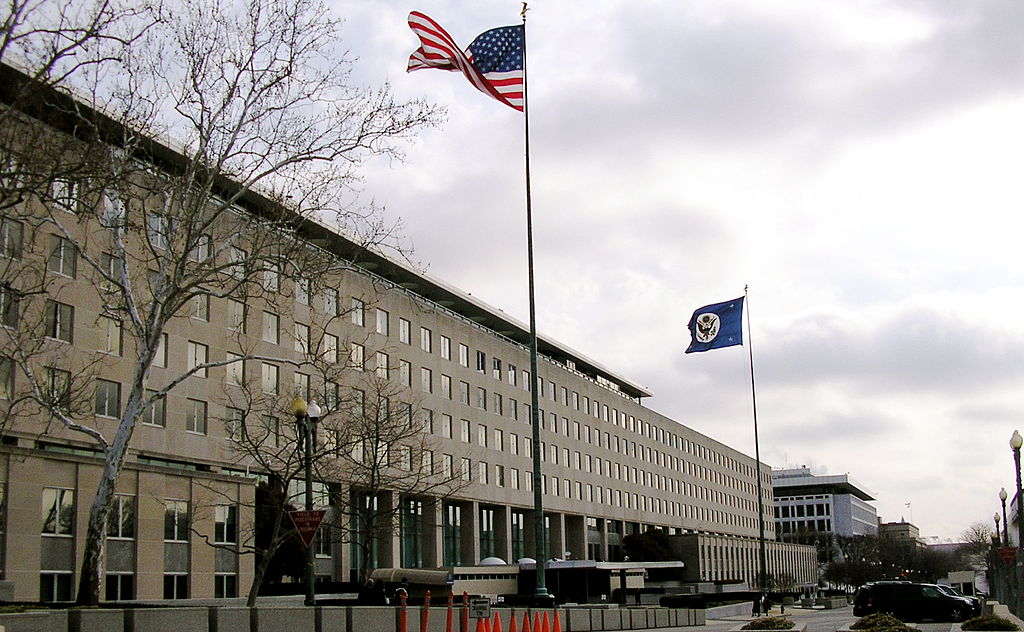On the Russian Proposal for Mutual Noninterference in Domestic Politics
In January, I floated the “contrarian” idea that the United States should consider cutting back on its threatening activities in Russia’s digital networks, including its “Internet Freedom” efforts to promote democracy in Russia, in exchange for Russia agreeing not to interfere in U.S. elections going forward. I am well aware of the many downsides of and hurdles to such cooperation.

Published by The Lawfare Institute
in Cooperation With

In January, I floated the “contrarian” idea that the United States should consider cutting back on its threatening activities in Russia’s digital networks, including its “Internet Freedom” efforts to promote democracy in Russia, in exchange for Russia agreeing not to interfere in U.S. elections going forward. I am well aware of the many downsides of and hurdles to such cooperation. But I thought the idea worth exploring in light of the United States’ failure over many years to defend its networks or deter interventions in them, and the unlikelihood that defense or deterrence would improve anytime soon. As I explained:
Simplifying a great deal, when a nation is vulnerable to a foreign threat it has three courses of action to improve its situation: (1) It can raise its defenses; (2) it can credibly threaten greater consequences for the attacker, thereby deterring the attacker from action; or (3) it can cut a deal in which it pledges to forego certain actions in exchange for relief from the threat by the adversary. I think the U.S. government focuses too much on (1) and (2) and not enough on (3). …
I don’t think the United States can continue unabated with all of its aggressive cyber actions abroad—intelligence collection, cyber attacks, information operations, and especially operations that undermine control abroad—if it wants relief from the cyber operations that are proving to be so damaging to U.S. society. Rather, I think the only hope it has to gain relief from these devastating cyber actions—or, at a minimum, a hope worth exploring—is to give our adversaries relief from our cyber actions that they perceive to be devastating. I am not talking about a treaty. But I am talking about an explicit understanding with major cyber adversaries, akin to understandings about the rules of espionage during the Cold War, that the United States will not engage in certain specific disruptive actions in exchange for desirable restraint by adversaries in U.S. networks. …
What our authoritarian adversaries really care about—where they are vulnerable in ways analogous to U.S. vulnerabilities in the recent election—are U.S. efforts to use its cyber and related capabilities in ways that are deemed disruptive to their domestic orders, i.e. the very thing the United States is up in arms about now. The most plausible item the United States could offer up in exchange for reciprocal restraint would be the U.S. Internet freedom initiative writ large, including efforts by the United States and U.S. firms to promote certain forms of speech abroad, and to enable circumvention of foreign tools of digital control. It would be a huge cost to the United States to tamp down on those activities, which have been central to its foreign policy during the last two administrations, and which in some ways define traditional U.S. foreign policy. But the costs on the other side are very high as well, and the possibility of some forms of mutual restraint should at least be explored in a serious way.
We now have news that the Russians are at least nominally interested in the idea. On Friday, John Hudson reported that last summer, Putin’s top diplomats met with top State Department officials and proposed in writing to make a “sweeping noninterference agreement between Moscow and Washington that would prohibit both governments from meddling in the other’s domestic politics.” The United States examined the proposal and said “thank you very much but now is not the time for this,” according to a senior State Department official.
I agree that now is not the time for this. As an anonymous U.S. official told Hudson, “[t]here’s a lot of confidence-building that has to be done”—confidence building in U.S.-Russia relations, and cyber-relations in particular. Another hurdle is that the United States still does not have a complete accounting of the Russian interference in the 2016 election. Another is that the Trump administration—which is led by a president who potentially benefited from the Russian interference, yet who denies his intelligence community’s unanimous conclusion that there was any interference—lacks the needed credibility with the American people and the U.S. intelligence community to make such a deal, assuming it were interested. Even if negotiations took place in deep secrecy, it is hard to see how the Trump administration could pull off a deal.
But I still think the U.S. government should consider seriously the idea of a deal with Russia for mutual forbearance from meddling in domestic politics. When nations face serious threats from one another, and when neither defense, nor deterrence, nor coercion suffices to alleviate the threat adequately, cooperation in the guise of mutual restraint is a natural option to explore. There are many standards hurdles to such cooperation, all of which are exacerbated in cyber context. One is verification. Another is definitional: Can the parties agree, with a precision that would enable cooperation, on what it means not to interfere in the other party’s domestic politics? A third potential hurdle I worried about in January was that the Russians would not see any gain from mutual forbearance—that they had more to gain from interfering in our democratic processes than any relief that they would receive from our declining to interfere in their domestic politics, plus whatever sanctions we imposed. One element of the big news in Hudson’s story is that the Russians represent that they do see aggregate benefit from the United States not interfering in their domestic politics. If true—a big caveat, since the proposal could be a continuation of Russia disruption efforts—it implies that there is at least the possibility of a deal.
And yet, Hudson also suggests that the United States is not taking the idea at all seriously. He reports that a senior State Department official “said any potential gains would come at too high a cost.” He quotes the unnamed official: “We would have to give up democracy promotion in Russia, which we’re not willing to do.” Giving up democracy promotion would indeed be a large cost. But assuming it really did eliminate a rerun of what Russia did in 2016, is it really not worth the cost? The question raises big questions about U.S. foreign policy and the true nature of the cyber threat to the integrity of U.S. democracy; and I am not at all confident of the answer. But I am confident that the cost-benefit calculus is not as obvious as the State Department official appears to believe. And I am also skeptical that the United States can have its cake and eat it too in this context. As I wrote in January: “My normative preferences, for what they are worth, are for the United States to exploit its offensive advantages in cyber to collect whatever information serves our national interests, to use this information in ways that serve our interests, and to promote those interests further by spreading the U.S. conception of freedom of speech and thought to other nations. The question is whether these are realistic goals.”
I do not think these are realistic goals, and until someone convinces me that they are, I will continue to think that the mutual forbearance idea is worth exploring.



.jpeg?sfvrsn=c4bce09_7)

